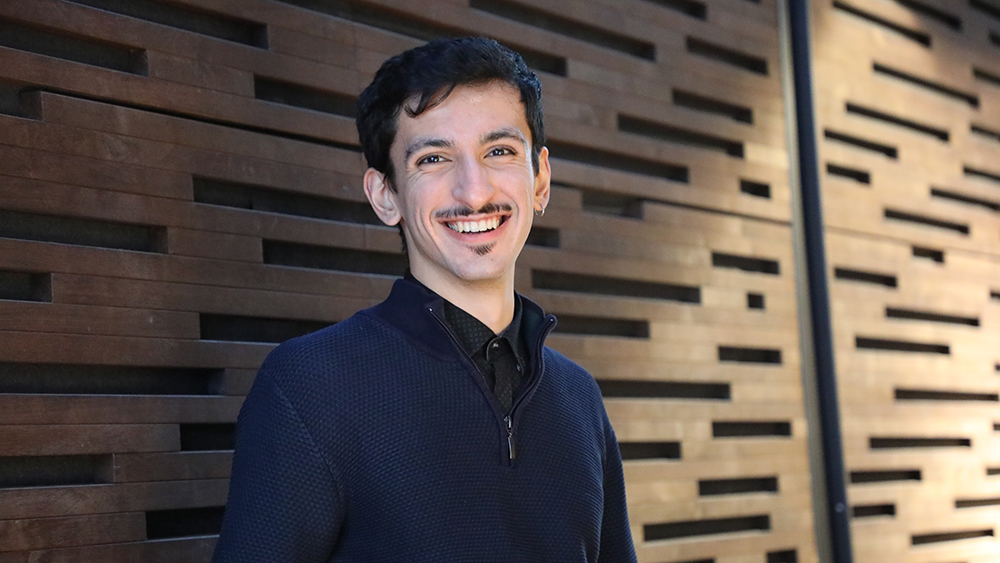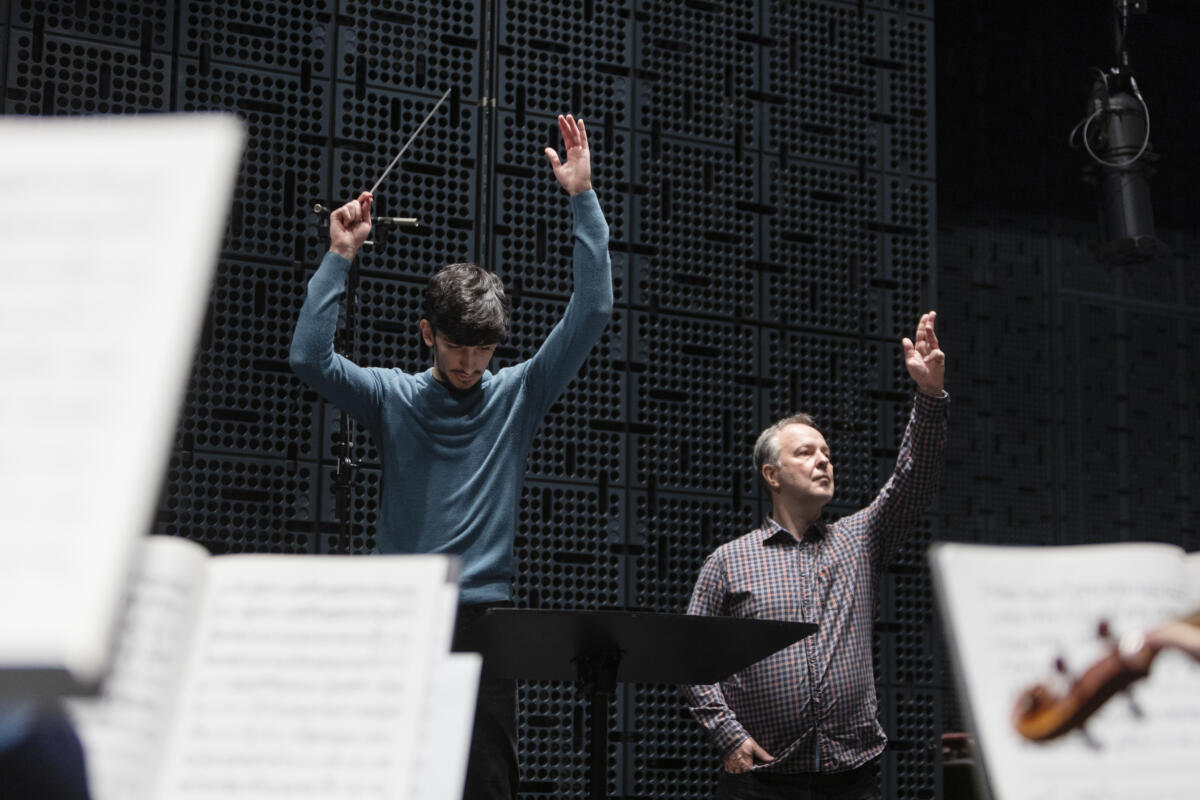Conducting student: Mental and personal growth has been just as important as the technical training
Interview with Costas Vallios, Conducting Student at the Sibelius Academy

Costas Vallios began his conducting studies at the Sibelius Academy in 2021, inspired by attending masterclasses at Jorma Panula’s conducting academy as a teenager. Now he shares a glimpse into his journey and the unique experience of studying in one of the world’s most respected music academies.
How do you prepare mentally before conducting an orchestra?
I focus on building relationships with the musicians and spending time together outside rehearsals. It helps me understand how to work with their individual personalities. Conducting is a collaborative art form, and the closer you are to the musicians, the better the experience. It gives me the sense of a familiar and safe place.
Our professor, Sakari Oramo, has been incredibly inspiring. Watching him work with both the school and professional orchestras is a masterclass in itself. His focus, energy, and ability to build a cohesive program are qualities I also strive to develop.
But the first thing is learning the score, of course. That’s what takes the most time and requires lot of individual work. I guess the preparation is mostly mental and done at home. The rest you need to experience in the actual situation with the musicians and the audience. That is something you cannot prepare for fully – you just need to get exposed to it.
I guess it’s easy to become almost obsessive with this profession, so maintaining balance is vital. For me, that means spending time with friends, going to the gym, and ensuring I have a life outside of music. It helps me stay grounded.
What role does feedback play in your growth as a conductor?
After each rehearsal, we receive feedback from our professor but also from peers, the other students. We all have different approaches, and learning from each other helps us grow. The atmosphere is supportive, and the opportunity to exchange ideas and experiences will be valuable even beyond our studies.
I notice that I have developed also by the feedback I get from the orchestra: when musicians share what they need from my conducting I can be more helpful. Sakari Oramo often speaks about ‘foolproof conducting’ meaning convincing technical and musical decisions that leave no room to doubt. To achieve that one needs to understand the players’ perspective.

What kind of a conductor do you aspire to be?
I started at a young age and had only a vague idea of what conducting studies entailed. It took time to adapt and develop a clear path for myself, but now think the mental and personal growth has been just as important as the technical training. I need to have the right tools for conducting and always be well prepared. I don’t really dream of big fame at this point – I just want to do the work well and gradually gain what is for me to gain. I want to have a healthy relationship with the orchestras and being accepted and loved – to genuinely work with the people and the musicians.
You are currently on a student exchange period in Frankfurt, Germany. Based on that, what is unique in the Sibelius Academy conducting education and how has this experience influenced your development?
For us at the Sibelius Academy, conducting a symphony orchestra two or three times a month is a rare and invaluable opportunity. I find it a safe environment where we can experiment without fear of mistakes. We also work with guest professors and professional orchestras in different cities across Finland. These connections are essential as they give us exposure and open future career opportunities.
My participation in the Marriage of Figaro opera project at the Sibelius Academy in Spring 2024 motivated me to take the step to the exchange. In Germany, there’s a strong focus on opera, which complements the freedom and artistic exploration encouraged at the Sibelius Academy. It’s been eye-opening to experience different teaching methods — I feel that Finland nurtures individual creativity early on and encourages you to explore your artistic identity, while Germany emphasizes craftsmanship and efficiency, particularly in the opera world.
Working in an opera production is like a small ecosystem: you spend a lot of time in a relatively small community with that might have a different way of thinking about things and different needs. You get to work with a lot larger group of people than with a symphony orchestra – and thus the role of the conductor is also different. Instead of being “the most important person” and taking the podium by yourself, in the opera you are one of the most important persons alongside with the soloists and many others. When conducting a long opera, you also learn to be economical in your conducting gestures in order to be able to get through the performance. It also gives you an idea of the structure; where you need to do less and where things are getting escalated and require more energy.
What advice would you give to future applicants?
Prepare well technically, but be genuine. Show your musical passion and individuality. Not everyone gets in on the first try, but don’t be discouraged. The admissions process isn’t about finding fully formed conductors; it’s about potential. Be yourself, and trust that what you have to offer will be enough.